Becca Stockwell (She/Her) - Bronikowski Lab
Hi! My name is Becca Stockwell, and I am a current master’s student working in the Bronikowski lab. I am excited to bring in and mentor an REU for this summer!
The lab looks at species evolution and their life histories through a demographic, genomic, and physiological lens, utilizing both laboratory and fieldwork applications. Our focus lies in understanding how different phylogenetic patterns and local adaptations of traits like
lifespan, reproduction, and growth may arise in species and why they may occur.
My area of interest pertains to the population viability of the western terrestrial garter snake species, looking on both molecular and macroscopic levels. During the REU program, our time will be spent studying the latter. We will be assessing water quality and levels of northern
California’s Eagle Lake. This will be done through water sample collections of the lake and its associated ponds and tributaries. Additionally, we will conduct surveys of both flora and fauna in the area.
I am seeking an REU who is excited to employ their skills in the field and is enthusiastic about expanding their scientific knowledge! Additionally, a majority of our time will be spent at the fieldsite at the Eagle Lake Campground, so the ability to work in strenuous conditions and
partake in tent camping is essential. Prior experience is encouraged but not required, as long as you are willing to learn! We will work together to contrive possible research questions to explore during your time as a mentee!
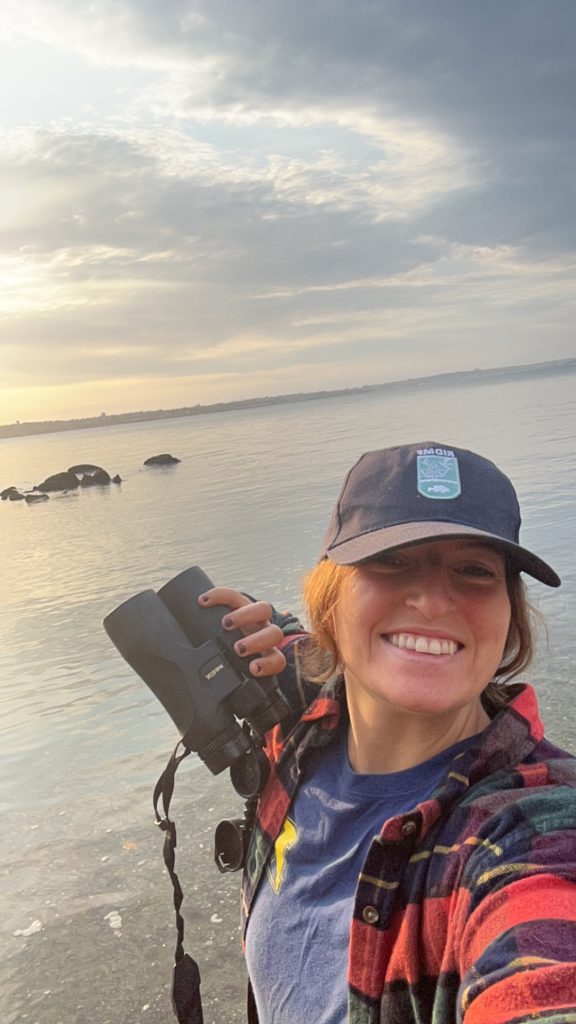
Jimmy Bingman (he/him) - Conner Lab
Hello! I am a PhD student in the Conner lab and I’m looking for an REU to join us this summer. I am pretty broadly interested in evolution, and in the Conner lab we study how plant traits evolve, usually by comparing different populations of the same species.
While evolution most famously occurs through direct natural selection, it can also occur by other means, including genetic drift (random fluctuations in the commonness of genetic variants that affect traits) or correlated responses to selection (when a trait is genetically linked to a different one that is under selection). Working with me, you’d likely participate in a larger project interested in whether and how a trait might evolve by these other means. We’re studying a specific trait: the number of stamens (the pollen producing organ) in the flowers of Arabidopsis thaliana (which I think of as the lab rat of plants). Many Arabidopsis populations at low altitudes and latitudes have recently evolved to have fewer stamens in their flowers, while those at high usually have not. What makes this evolution especially interesting is that there’s no obvious reason why the number of stamens in flowers would be relevant to adaptation to different altitudes or latitudes. This makes stamen number a great candidate for investigating whether and how evolution might be influenced by forces other than direct selection.
While your exact role within this project depends on what you’re most interested in, one option will be to work with me and other lab members to collect and analyze data from plants grown in growth chambers. This could range from measuring plants directly to analyzing image data to combining either of these with genomic data as we try to figure out the genes that affect stamen number. However, if you’d rather think outside the box and develop your own project related to trait evolution, that would also be welcome.
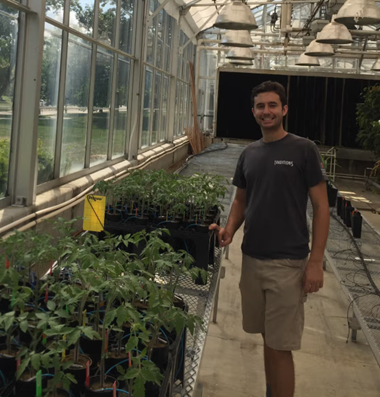
Dr. Tyler Linderoth - Fitzpatrick Lab
Hi! I am a genomics research specialist in the Fitzpatrick Lab at KBS and a consultant for the MSU Bioinformatics Core. I study how demographic and evolutionary processes shape genetic and phenotypic diversity, contribute to adaptation, and influence population persistence. I’m especially motivated to figure out how to conserve imperiled species by integrating population genetic theory with statistical genetic and computational approaches, along with developing new methods that aid other researchers and conservation practitioners in this goal. My work has focused on developing statistical methods for inferring population histories, identifying adaptive genes, and characterizing genomic architecture using genomic sequencing data across a variety of taxa ranging from bacteria to humans. I’m currently using genomics to help conserve at-risk Florida Scrub-Jays, harlequin frogs, and Poweshiek skipperling butterflies, while more broadly trying to understand how changes in population size, connectivity, and management practices affect extinction risk.
I am excited to work with a student on developing new methods for analyzing genomic sequencing data. One potential student-led project is to develop a computational method for characterizing the genetic architecture of inbreeding depression, which is the loss of fitness from inbreeding. We currently have a crude understanding for how inbreeding erodes fitness, in part because relating genome-wide variation to polygenic phenotypes in a statistically meaningful way is challenging. This project will seek to solve this problem by developing machine learning models and algorithms guided by population genetic principles that can be used to map variation in the distribution of inbreeding to fitness-relevant phenotypes. The other potential project is to develop a likelihood-based approach for estimating heterozygosity, which is an important measure of genetic diversity that is widely used in population genetics and conservation. This project is motivated by the fact that genomic sequencing effort can strongly bias estimates of heterozygosity, which erodes power to accurately assess the genetic health of populations and even identify signatures of natural selection. The student will develop a method (e.g., a hidden Markov model) that can be used to accurately estimate heterozygosity at the level of a single genomic site up to the entire genome, even when the amount of data are little and sparse. A third project option is to develop a machine learning approach for inferring demographic histories and identifying adaptive genes by jointly fitting distributions of allele frequencies and correlations among genomic sites. Both historic and more recent population sizes and migration rates shape the landscape of genomic variation and inbreeding within and among populations, which can influence the likelihood of species persistence, however, accurately estimating these demographic parameters over broad timescales is a classically difficult problem in population genetics which this project seeks to solve. For any of the proposed projects, the student will implement their method as a computer program and assess its performance on simulated data, as well as analyze real sequencing data from a species of conservation concern. The methods from all projects will mark significant advances in the ability to use genomic data for conservation, while in some cases even having applications in fields like medical genetics. There is flexibility for the student to explore and design a project different from the three described, but the project should be computational and address a question in the sphere of population, conservation, and/or evolutionary genetics. This research opportunity will provide learning in population genomics, statistics, and one or multiple computer programming languages (e.g., C, C++, Python, Perl, or R).
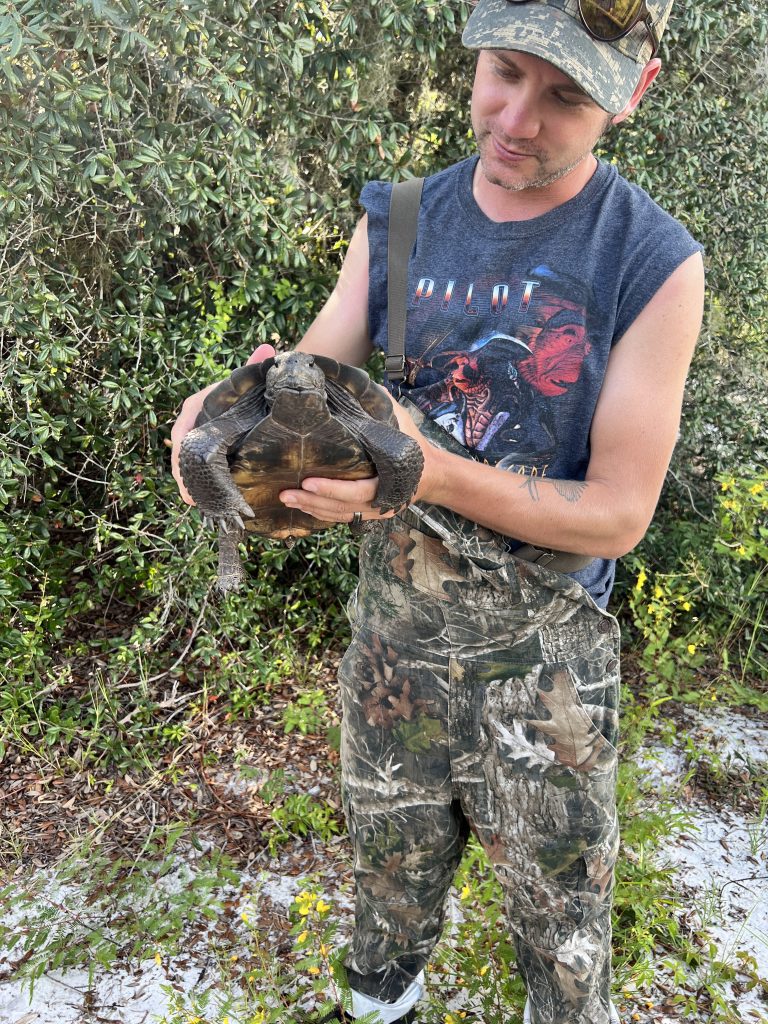
Dr. Kadeem Gilbert - Gilbert Lab
Hello, I’m Dr. Kadeem Gilbert, an Assistant Professor at KBS, also affiliated with the Plant Biology department, the program in Ecology, Evolution, and Behavior, and the Plant Resilience Institute among others.
At the broadest level, I am interested in how plants are able to mediate their interactions with symbionts that live on or in their leaves. I particularly like considering leaf structures as microenvironments with abiotic factors that plants can regulate via their physiology. Much of my work has involved the communities living inside the digestive fluid of pitcher plants, but recently I have expanded to also investigating communities on non-carnivorous leaves as well. While it may not be a big surprise that carnivorous plants can control the acidity of their digestive fluid, it turns out that “regular” leaves can also control pH levels on their surfaces and any moisture they interface with.
I am excited to mentor an REU student with Cristal!
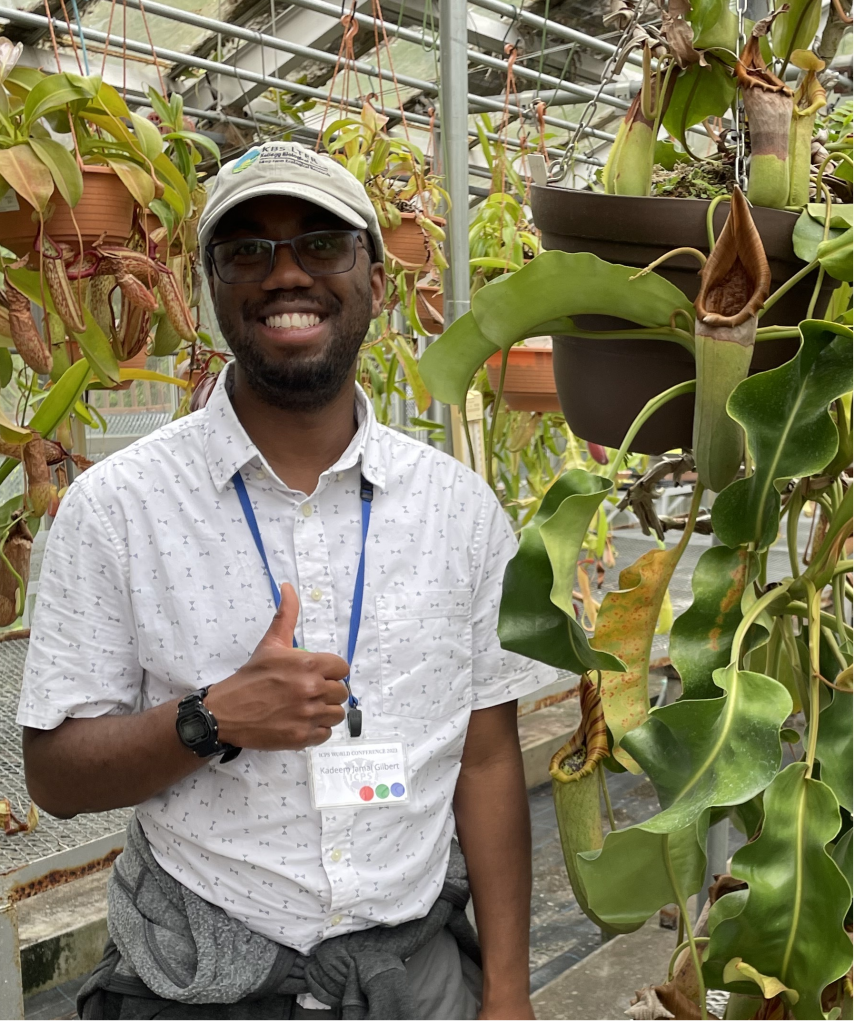
Cristal López-González (she/her) - Gilbert Lab
I’m Cristal, a PostDoc-Lab Manager in the Gilbert Lab. I’m a Plant molecular biologist and biotechnologist. I’m broadly interested in understanding the molecular mechanisms of plants under two approaches, 1) increasing crops yield and 2) how plants respond to abiotic stress, specifically pH stress.
This summer I’m particularly excited because I’ll be launching a new project with the main question: “How early can plants expose hidden fungal infections through subtle physiological shifts, and how does climate shape these signals?” The project will involve two components, 1) a controlled experiment in the greenhouse and, 2) fieldwork. Both imply physiological measurements, molecular confirmation of infection, and interdisciplinary integration of physiology and climate data. You can adapt the project to your own skills, new skills you want to develop and as it better fits your career goals.
I’ll be really happy to work with an REU student who wants to get onboarded in this project idea (plant-fungus interaction) and expand it. No previous experience necessary but the clearer you know what you want to accomplish from this summer experience, the better.
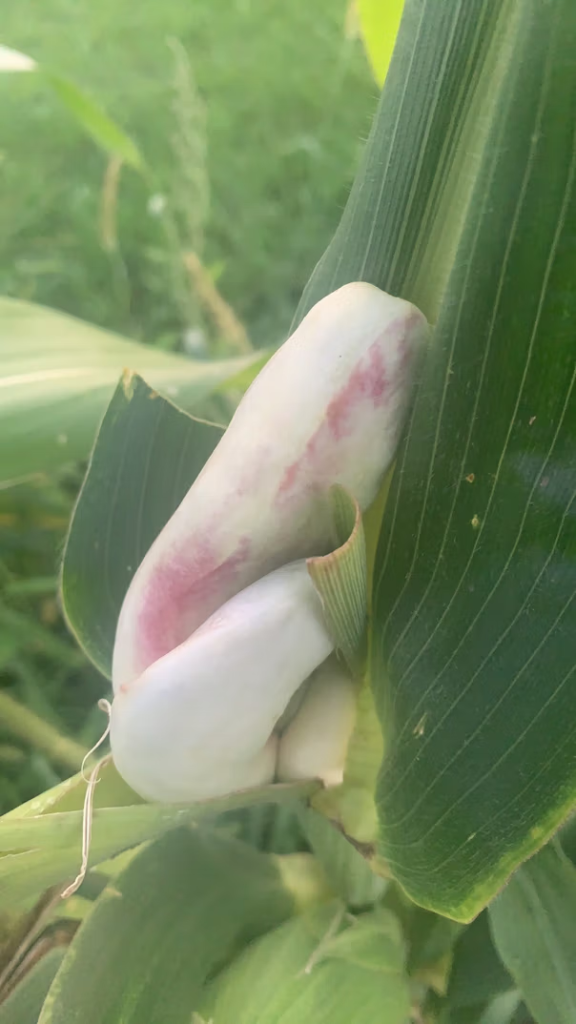
Dr. Rebecca Nelson (she/her) - Haddad, Sprunger, Evans Labs
Hello! I’m an EEB Presidential Postdoctoral Fellow at MSU in the Haddad, Sprunger, and Evans labs. I’m excited to mentor students this summer! My work at KBS focuses on prairie strips as a potential conservation solution.
Broadly, my research examines how interacting anthropogenic changes affect plant-pollinator mutualisms in working landscapes. I am passionate about integrating community ecology theory with fieldwork and applications to ecological restoration. In particular, I use ecological networks as a conservation tool to link ecological theory with management practices. I am also excited about science communication, LGBTQ+-inclusive teaching practices, and collaborations with farmers and land practitioners.
My work this summer asks: to what extent does planting prairie strips in agricultural landscapes restore species interactions and ecological functions? I’m seeking enthusiastic and motivated undergraduates to join me in collecting field data on plant-arthopod interactions in prairie strips around KBS. We will be comparing plant-arthopod networks in prairie strips to restored prairies and unmanged, weedy pastures.
This opportunity will primarily involve fieldwork outdoors. Students will learn plant and arthopod identification, survey, and collection methods. Students will have the opportunity to be part of a collaborative field team. Part of this work will involve handling insects, spiders, and plants. Potential project ideas for an undergraduate working with me include: (1) How do land use changes affect plant traits? (2) Do prairie strips alter pollinator behavior? (3) Does floral predator behavior and diet differ with land use type? (4) Does land use type alter rates of herbivory?
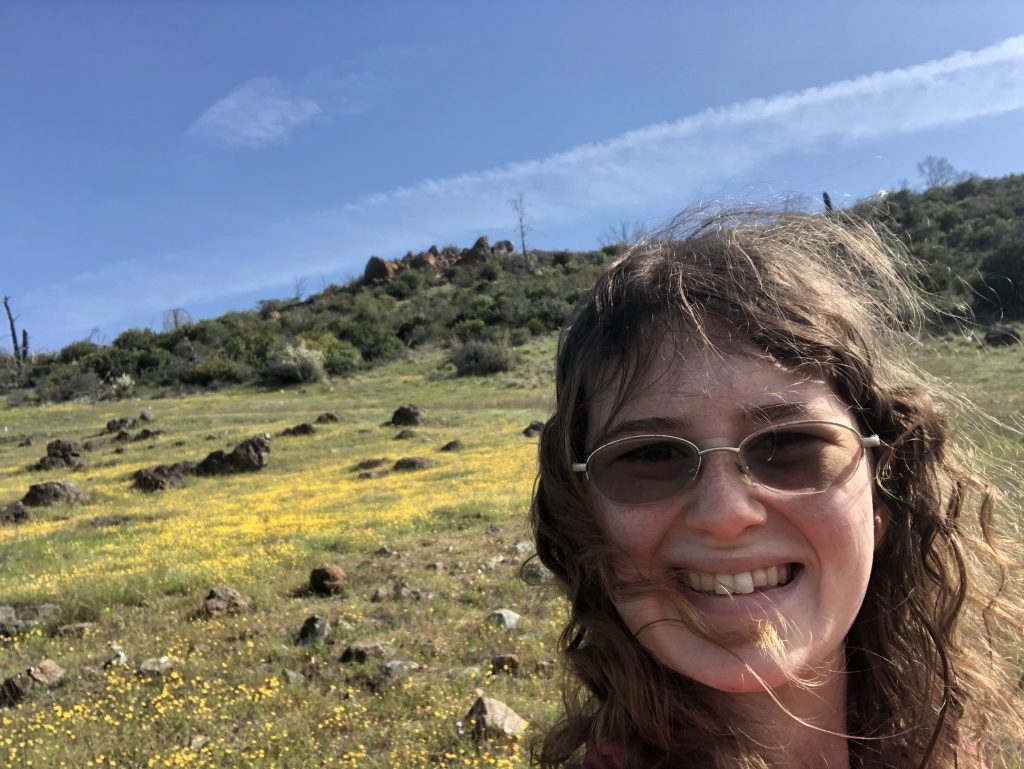
Ashley Darst (she/her) - Haddad Lab
I am a Ph.D. student in the Haddad Lab at KBS, and I am excited to mentor a student this summer!
I am broadly interested in butterfly-plant communities in the context of anthropogenic change (e.g., pollution, habitat loss/conversion, etc.). I am also passionate about pollinator conservation. I am currently investigating how sodium affects pollinator preference for flowers, and I am beginning to study how pesticides affect Monarch butterflies. I plan to conduct my research in restored prairie areas around KBS and in the greenhouse.
A student working with me should expect to work outside in the field and learn basic butterfly and plant identification. Potential projects could ask whether butterflies prefer salty nectar or whether pesticides affect a certain performance measure in Monarchs. I could provide ample support for any projects looking at butterflies, prairie plants, or bumble bees, but I am open (and excited!) to hear your own project ideas. Conducting experiments is only one step in the research process. I am excited to help you statistically analyze your own data and communicate your findings with the world!
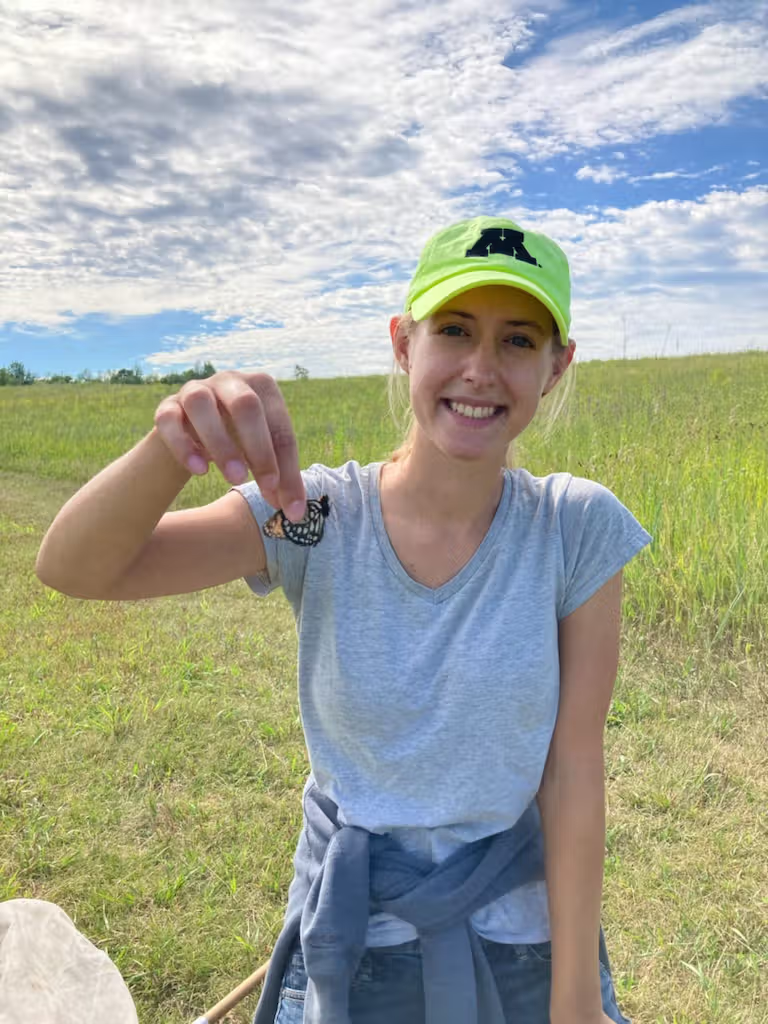
Jamie Smith (she/her) - Haddad Lab
Hello! I’m Jamie and I am the lab manager for Nick Haddad at KBS. Nick’s KBS projects center around finding ecologically and economically sustainable strategies for increasing biodiversity in agricultural systems with an emphasis on insects. Insects provide ecosystem services like pollination and pest control that are valuable to agricultural crops, but many conventional farming practices contribute to the global decline of insects. Most of the studies in Nick’s lab involve monitoring insect populations in crop fields across a gradient of agricultural intensity, with and without native plant additions.
There are many possible projects for an undergrad who is interested in how insect abundance, diversity, and/or fitness are affected by agricultural intensity. I look forward to hearing your ideas for a project! If you’re looking for examples, I have a few ideas below.
- Does prairie strip placement within a crop field affect pollinator abundance and diversity?
- Does prairie size and configuration affect where native butterflies lay their eggs?
- Flies as pollinators: how does their floral visitation rate compare to native bees?
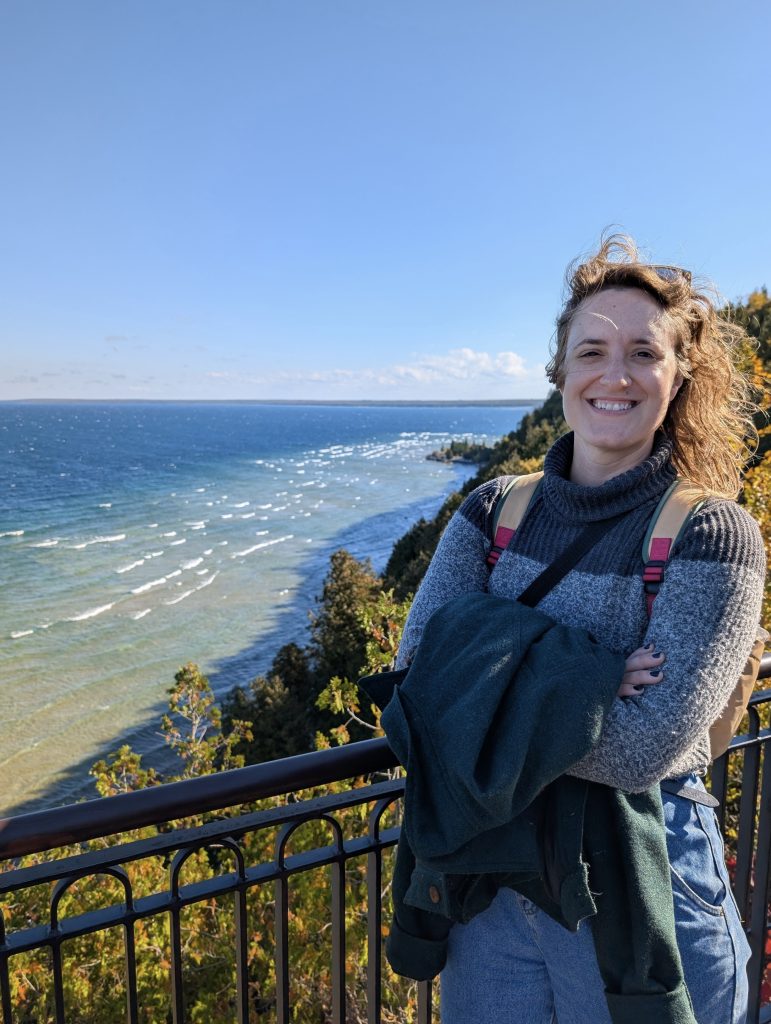
Sam Stynen (he/they) - Haddad Lab
Hey! I am a second year PhD student in the Haddad Lab working on the impacts of climate change on butterfly morphology using field experiments and museum samples. I am looking for an REU student interested in the impacts abiotic factors have on individual butterfly fitness. I will be setting up structures for enclosed cabbage white colonies under different abiotic influences and study them across generations. As an REU student it would be important that your experiments build off this setup as a lot of time will be spent working with it.
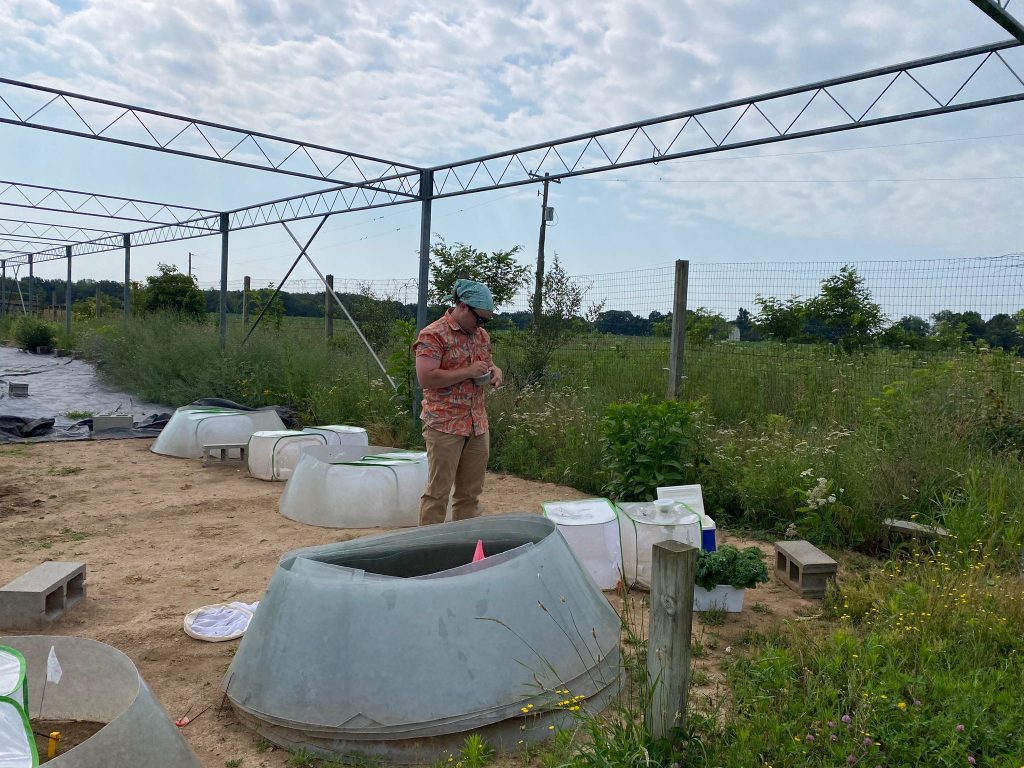
Sam Stynen (he/they) - Haddad Lab and Elizabeth H. Schultheis, PhD (she/her) - LTER
Liz is the LTER Education & Outreach Coordinator at KBS as well as the co-founder of Data Nuggets, a free resource of lessons for teachers written by scientists. Sam is a graduate student studying the impacts of temperature on butterfly demography, but is very interested in education and outreach. This REU position is for pre-service teachers (undergraduates in teaching majors). You will explore the scientific process and gain experience to demystify science for your future students. The ending product for the REU will be a Data Nugget!
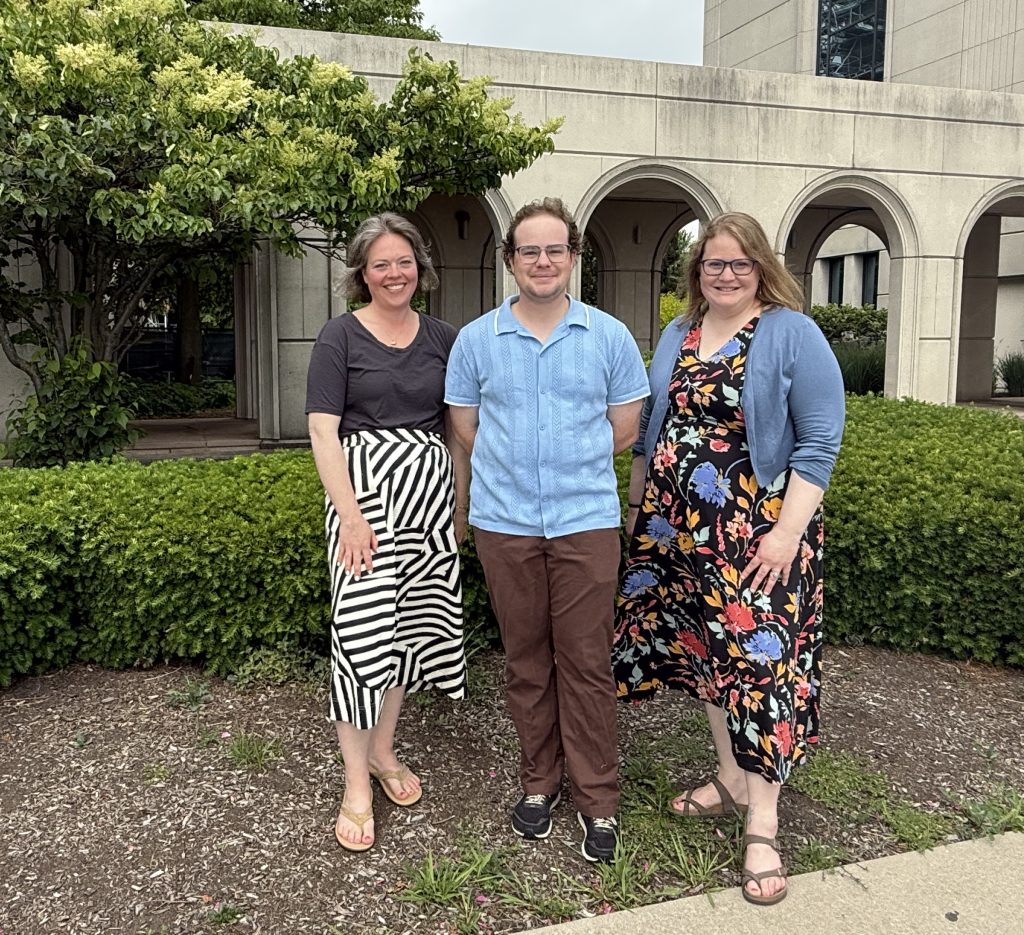
Sawyer Barton (she/her) - Janzen Lab
Hi! My name is Sawyer Barton, and I am a first year PhD student in the Janzen Lab at KBS, and I am excited to mentor an REU student this summer!
I am broadly interested in understanding the ecology and evolution of polyphenic traits. Specifically, how environmental change/stress can alter discrete phenotypes (e.g., environmental sex determination) and survival rates (mainly via maternal effects). Currently, I will be investigating these ecological questions with turtles as a study system.
While the exact details of the summer research season are yet to be determined, a student working with me should expect a good balance of field and lab work. A part of this research will take place at the Janzen field site in Illinois (aka Turtle Camp) where students will conduct daily transect surveys in challenging terrain over a 1–2-week period (late May – early June) to collect mark-recapture data for turtles and snakes. Some potential project ideas for an undergraduate working with me include: (1) What species abundance trends can be found by comparing past (1996-2022) to current (2025) results from mark-recapture data from the Illinois field site? (2) How do extreme environmental conditions (such as heat waves, salinity pulses, moisture availability, etc.) impact developing embryos/offspring?
I seek an undergraduate who is excited to expand scientific research and is comfortable working outdoors in strenuous conditions. Turtle Camp is real tent camping so be ready to face the elements (heat, humidity, mosquitoes, etc.)! While prior research experience is encouraged, it is not necessary as long as you are willing and excited to learn.

Corinne Conlon (she/her) and Bradley Scholten (he/him) - Kozakiewicz Lab
Hi! We are Dr. Bradley Scholten (post-doc) and Cori Conlon (PhD student), members of the Kozakiewicz Lab at KBS. Our lab focuses broadly on disease ecology, landscape genetics, and pathogen evolution in diverse wildlife systems. Cori has a background in wildlife parasitology and pathogen genetics, and is interested in how pathogens are transmitted between wildlife, domestic animals and livestock, and humans in changing landscapes. Bradley received his PhD at North Carolina State University studying the role songbirds play in the spread of antimicrobial resistant bacteria, and is also broadly interested in the dynamics of disease spread at the human-wildlife interface. We are looking forward to recruiting an REU student who has an interest in disease ecology and is open to working on a project that involves a combination of field work, microbiological and wet lab work, and bioinformatics.
We are working on a project that investigates how pathogens may be transmitted between wild birds and livestock across the agricultural interface, and how different hosts (bird communities, species characteristics) and landscape factors (rural-urban gradient, farm types and size) influence the degree of pathogen transmission among populations. We will be culturing and sequencing bacteria collected from wild songbirds and livestock to understand networks of transmission and the spread of antimicrobial resistance genes in these populations.
A student working with us could expect to participate in some fieldwork involving mist-netting and sampling wild birds on farms and agricultural areas, lab work including culturing and maintaining bacterial samples, potentially testing phenotypically for antimicrobial resistance, learning genomic techniques, and analyzing sequence data using R. Some potential project topics could include how pathogen diversity in wild birds changes with community composition or land use, how pathogens are transmitted between native and invasive bird species, or understanding patterns of antimicrobial resistance across different animal hosts or environments. We are also open to suggestions and are happy to work with students to develop their own ideas that are adjacent to this work.
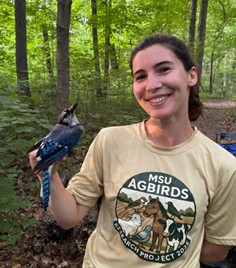
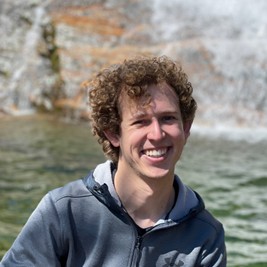
Thomas Zambiasi (he/him) – Lau Lab and Mark Hammond (he/him) – Lau and Zarnetske Labs
Hey! We’re Thomas (PhD candidate in Dr. Jen Lau’s lab) and Mark (lab technician for both the Lau and Zarnetske labs), and we’ll be co-mentoring a URA this upcoming summer at KBS. Thomas is primarily interested in uncovering the mechanisms behind nitrogen’s effects on plant-pollinator interactions and conducts fieldwork in the Biofuel Cropping System Experiment (BCSE) fields at KBS to understand how nitrogen effects on these interactions vary by plant community type. Mark, in his role with the Lau Lab, helps collect data for and maintain lab projects in the Long-Term Ecological Research (LTER) site at KBS, where we investigate the effects of many global changes (nitrogen enrichment, drought, disturbance) on plant communities and their interactions with soil microbes.
A student working with us should expect to conduct field surveys to support Thomas’ project, which would involve identifying and counting flowering plants in the field and identifying and tallying pollinator visits to flowers. You would also likely help Mark with work for broader Lau Lab projects, which may include entering data, collecting trait measurements, and maintaining plots at the LTER site. We also aim for URAs to craft their own experiment or natural history collection to present in a poster at the end of the summer session. Students working with Thomas in the past have done everything from building insect collections at the BCSE fields to investigating nitrogen effects on specific traits like nectar production, so the possibilities are endless!
Thomas will take the lead on bringing the URA student up to speed on survey protocols (prior plant/insect ID skills are fantastic but not super necessary!), as well as helping develop an independent project and guiding through data analysis as necessary. Thomas will be at KBS several times throughout the summer to help with data collection, but will need to travel back and forth from Indiana to maintain projects on Indiana University’s campus. Mark will be the day-to-day contact person during these times, but we will all meet frequently via zoom (or in-person when possible) to chat through the research, answer questions, and make sure the summer goes as smoothly as possible!
Carol Waldmann Rosenbaum (she/her) - Litchman Lab
Hi! My name is Carol Waldmann Rosenbaum and I am a fourth-year PhD student at the Litchman Lab. I research freshwater cyanobacterial algal blooms; specifically how environmental drivers such as temperature and nutrients affect these blooms. I use a trait-based framework to understand the differences and similarities between different cyanobacteria genera and how these traits determine the community composition during bloom seasons. Most of my research is done in the lab using over 300 cyanobacterial strains isolated from the Laurentian Great Lakes and Lake Victoria in Africa.
I am looking for an undergraduate student interested in freshwater quality, community ecology, and harmful algal blooms. As an undergraduate in the Litchman lab, you will have the opportunity to sample local lakes and get familiar with several sampling techniques, learn how to identify, isolate, and culture different groups of phytoplankton, and learn how to use different types of microscopes.
Together we will develop a research project that interests you and falls within the scope of what we do in the lab. Examples of research questions you could answer are: How cyanobacteria from different Laurentian (North American) Great Lakes compare to African ones? How do temperature or nutrients affect bloom dominance in Lake Erie? Have a different related idea? I am open to hearing your thoughts and developing something together.
No previous experience is necessary! I am looking for someone passionate about lakes and water resources that could see themselves working in a lab environment most of the time.
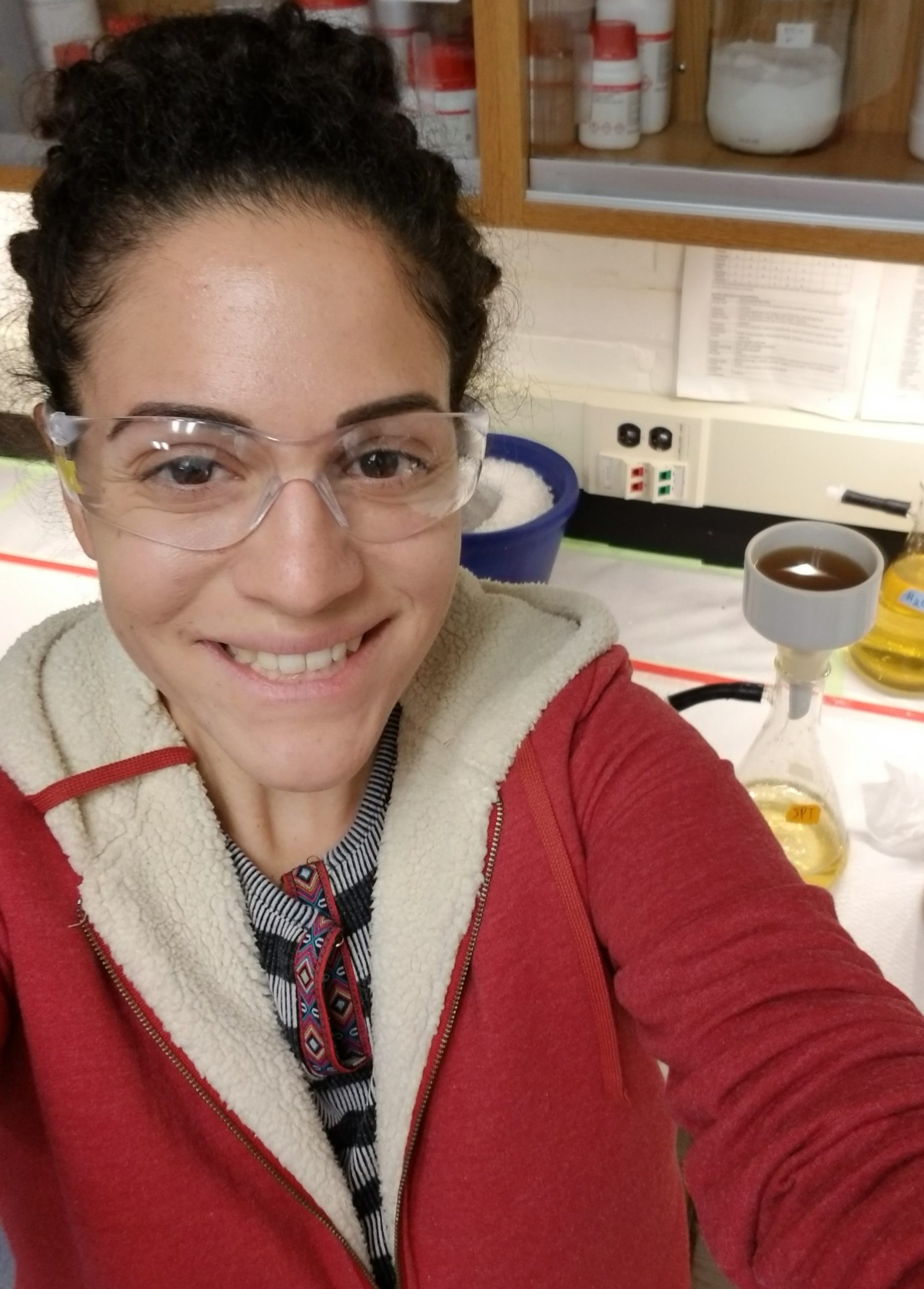
Keila Stark (She/Her) - Litchman Lab
Hi! I’m Keila, a postdoctoral research fellow in the Litchman Lab. I am a marine microbial ecologist, but I study both freshwater and marine phytoplankton.
Different species have different thermal traits: Some are warm-adapted and some are more cold-adapted; some grow fast but only at a narrow range of temperatures, and some grow more slowly but can persist at a wide range of temperatures. I study how this thermal trait diversity arises and how it restructures communities exposed to changing temperature regimes. I am also interested in understanding the community dynamics that lead to harmful algal blooms. My research uses a combination of theory, experiments, and field data.
I’m excited to mentor a student interested in aquatic community ecology, and learning lab techniques for culturing phytoplankton and extracting microbial DNA and RNA. The project you would support is an experiment investigating the mechanism behind thermal trait plasticity in several phytoplankton species from different latitudes, using population growth data and transcriptomics. In addition, I would love to facilitate your goals for your time at KBS, so there’s room to incorporate fieldwork in nearby lakes, analyzing existing marine datasets, or other research skills if that’s of interest!

Dr. Alisha Shah - Shah Lab
We will be working on a continuation of last year’s work in which the student will study how dragonflies that have had wing pigmentation enhanced spend time patrolling ponds versus thermoregulating. The study will involve catching dragonflies (this is pretty hard!), and developing experiments in the lab to study their thermoregulatory behavior. The student will learn how to use a thermal imaging camera and conduct cutting edge research on thermal tolerance and vulnerability to climate change in dragonflies.
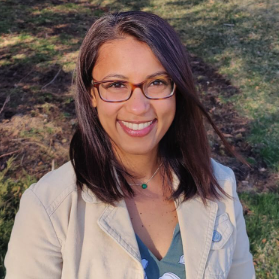
Stephanie Bristow (She/Her) - Shah Lab
I am a Ph.D. student in the Shah lab at KBS, and I’m looking forward to mentoring a student in 2026!
I am broadly interested in studying how aquatic species respond to environmental temperature, especially when combined experienced alongside other factors (like predation risk). My PhD research focuses on how environmental stressors—including climate change—affect organismal physiology and community interactions. I am particularly fascinated by how organisms sharing the same environment may respond uniquely to these stressors. Currently, I work with Michigan lake communities, focusing on fish-predators and damselfly-prey, but my research experience spans a wide range of freshwater systems and taxa, including bacteria, protists, amphibians, turtles, fish, and macroinvertebrates.
As a student working with me, you would explore how bluegill sunfish respond to temperature changes through shifts in their growth rates. However, this will just be one aspect of your summer research experience here at KBS and in the Shah lab. I am passionate about mentoring undergraduate students and helping them develop valuable skills for integrative research, including experimental design, scientific communication and writing, outreach, networking, and peer review.
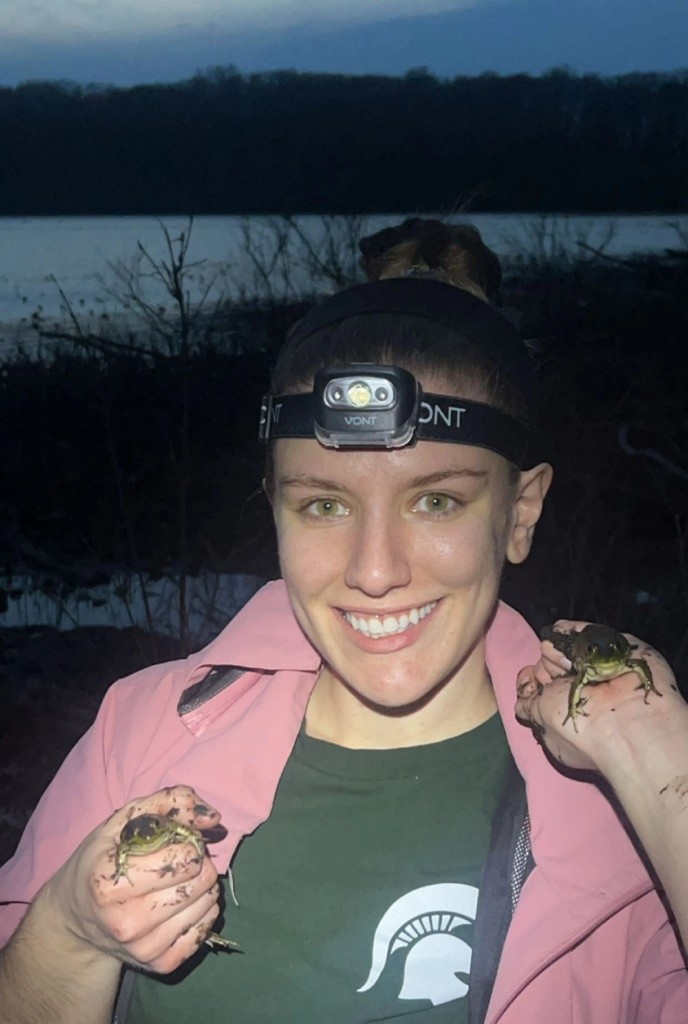
Peter Martin - Shah Lab
Hello! My name is Peter, and I’m a Ph.D. student in the Shah Lab at the Kellogg Biological Station. I’m really looking forward to mentoring an URA this summer 🙂
My work focuses on the effects of temperature and oxygen availability within the aquatic environment, and my primary study system is the pond permanence gradient, an environmental gradient that describes how often a still freshwater habitat dries out and along which there are predictable changes in thermal and oxygen regimes. At one end of the gradient there are ephemeral pools that fill and dry out seasonally and that have warmer, poorly oxygenated waters, and at the other end of the gradient there are permanent ponds and lakes that are typically cooler and well-oxygenated. In our part of the world, a group of damselflies (the Pond Spreadwings, genus Lestes) has sorted along this environmental gradient: virtually every type of still freshwater habitat in Michigan has a species of Lestes that specializes for that particular habitat. Within this system I ask questions about how temperature and oxygen availability have shaped the trait spaces of these damselflies (i.e., are there signals of morphological and physiological divergence among different specialist species) and how these two abiotic factors may mediate interspecific interactions, as well as how environmental change (e.g., global deoxygenation of freshwaters, warming temperatures) may impact population persistence and species’ ranges.
This summer, my URA will get experience in a broad range of tasks: we will carry out field surveys (to identify sites where Lestes are present, take environmental data, record the species that are present, and sample organisms), conduct lab experiments (to quantify physiological traits, or to perform rearing work), and work with microscopes and specialized software to acquire and process images of tissue samples and quantify key morphological traits. There’s a lot of scope within these three research areas to develop a cool and interesting summer project, and I’d love to brainstorm a project idea that will appeal to your interests!
Experience in field and lab work, as well as some basic coding skills (especially in R), are a plus, but certainly not required! The only requirements are that the potential candidate be passionate about freshwater science, eager to learn and practice a variety of research methods, and comfortable with hiking out to field sites and spending hours at a time outdoors (sometimes the weather isn’t nice to us).
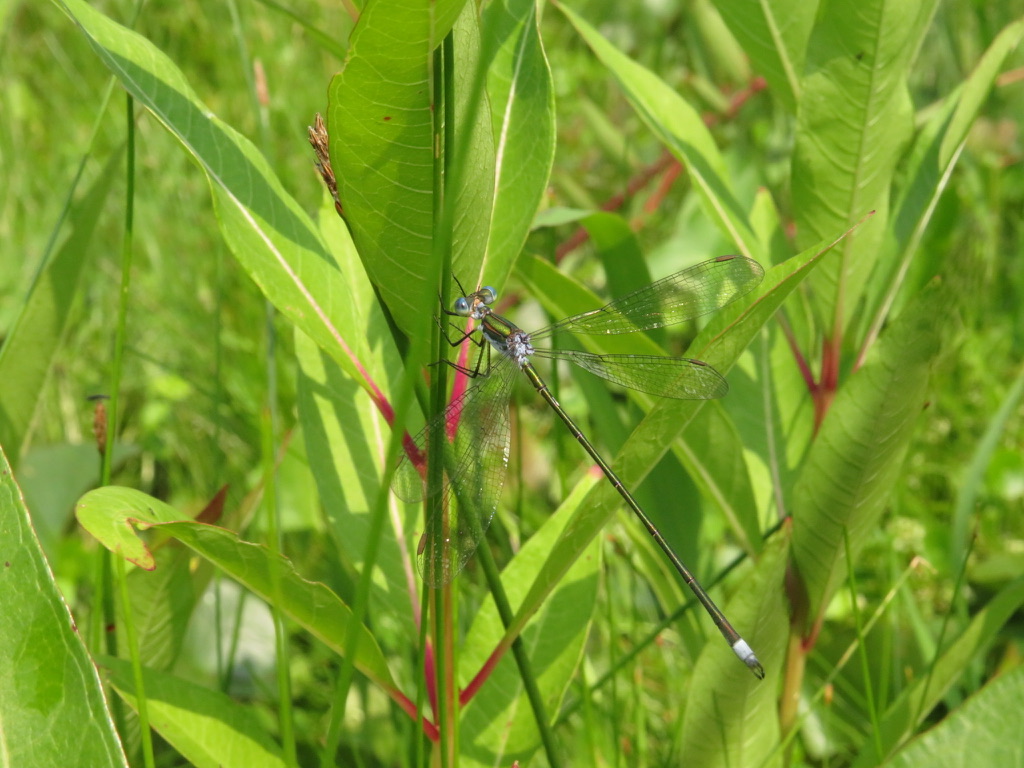
Dr. Katie Gattoni (she/her) - Sprunger Lab and Jordan Ziss (she/her) - Brudvig Lab
Hello! I am a postdoc in the Soil Health Lab led by Dr. Christine Sprunger. I study nematode ecology and soil health in a diversity of ecosystems ranging from natural grasslands to intensive agricultural farms. My co-mentor, Jordan is a Ph.D. student in Dr. Lars Brudvig’s plant restoration lab. Her work focuses on how global change impacts plant communities and their functional traits, and how trait diversity of plant communities can impact responses to stress. We are very excited to work with a REU in a project that bridges plant and soil biodiversity.
Along Co-PI’s Jordan Ziss and Moriah Young, you would work on a project (WarmX) that aims to quantify the effect of warming on plant diversity and how this varies depending on plant functional dynamics. There will be an herbivory component with some treatments being inoculated with plant parasitic nematodes. Much of the help needed with this project involves measuring and recording plant traits and monitoring greenhouse conditions. There is also potential for you to be involved in the termination of the project which would include processing soils for nematode communities and other soil health parameters.
In addition to this project, you will have the opportunity to work in the Sprunger lab which uses a wide variety of methodologies to investigate soils. We are frequently involved with fieldwork, lab work, data analyses and communication. You will have the option to learn more about nematodes and other soil biological health characteristics, as well.
We are very excited to provide a unique opportunity to perform interdisciplinary research that incorporates both plants and soils.
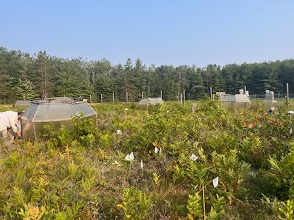
Isabella Vergara (she/her) - Sprunger Lab
Hello! I am a first year PhD student in the Soil Health and Ecosystem Ecology lab led by Dr. Christine Sprunger at KBS. I am very excited to be working with an Undergraduate Research Assistant this summer! I am broadly interested in researching how plant roots impact carbon and nitrogen accumulation in the soil. My work focuses on diverse, perennial herbaceous cropping systems that have deep, dense root systems that can increase soil health.
My plans for research this summer include measuring soil health metrics (how much carbon and nitrogen are in the soil), microbial community, and root traits. This research is part of the Great Lakes Bioenergy Research Center (GLBRC), a long-term field experiment that will allow us to look at plant systems along a diversity gradient.
As a research assistant, you will be able to develop an independent research project to understand (1) how plant diversity impacts root traits, soil microbial community and soil health, (2) how these traits vary across the soil profile (to 1-meter depths) and across field sites. You will not only gain experience collecting soil samples in the field, but you will also learn many lab techniques including processing soil cores, measuring soil health indices, and collecting root trait data. No prior experience is necessary, as long as you have an interest in studying what plants are doing belowground!
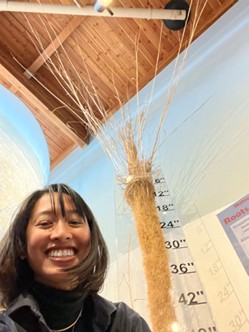

A legacy of conservation; a commitment to sustainability.
3700 E. Gull Lake Drive
Hickory Corners, MI 49060
(269) 671-5117
info@kbs.msu.edu